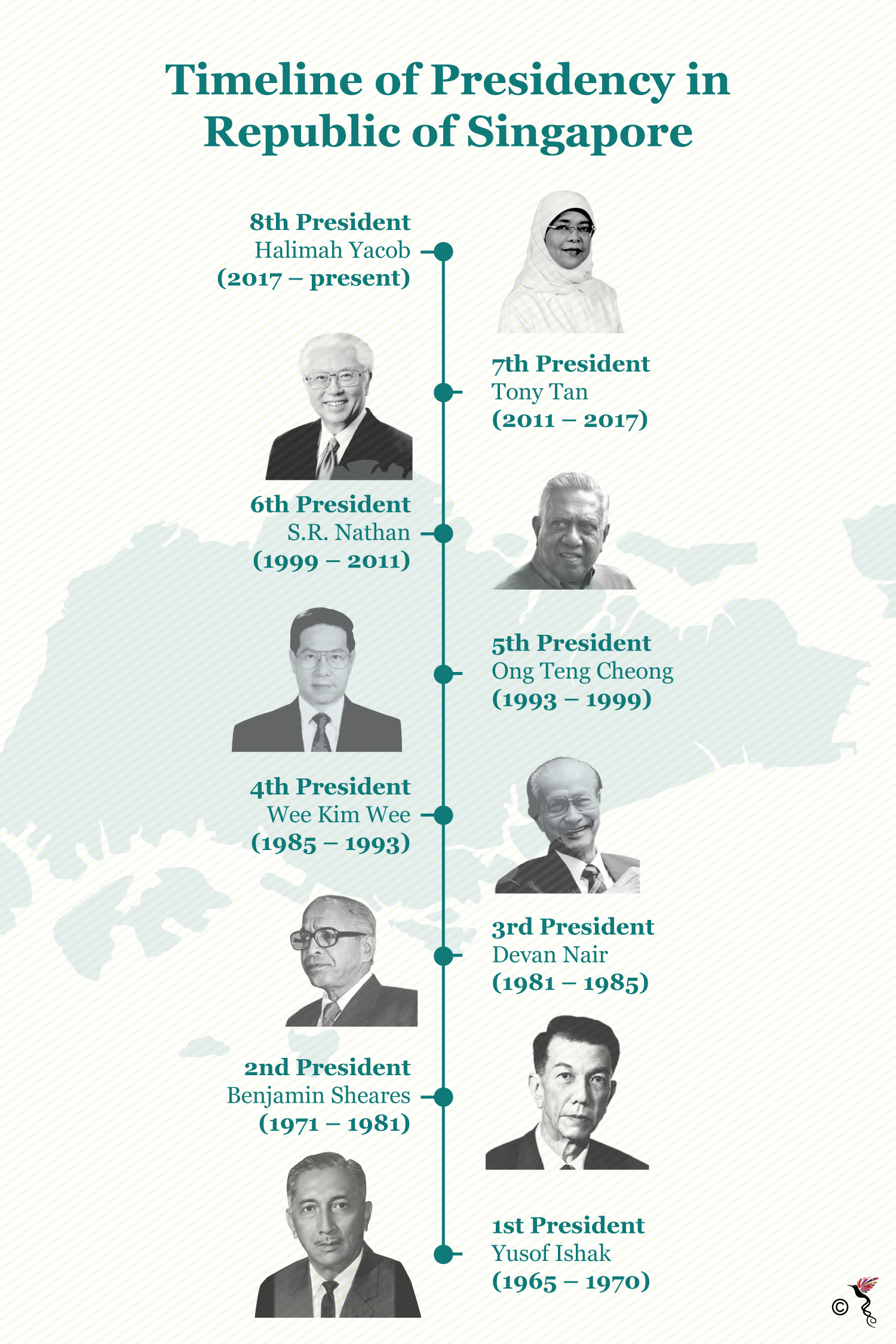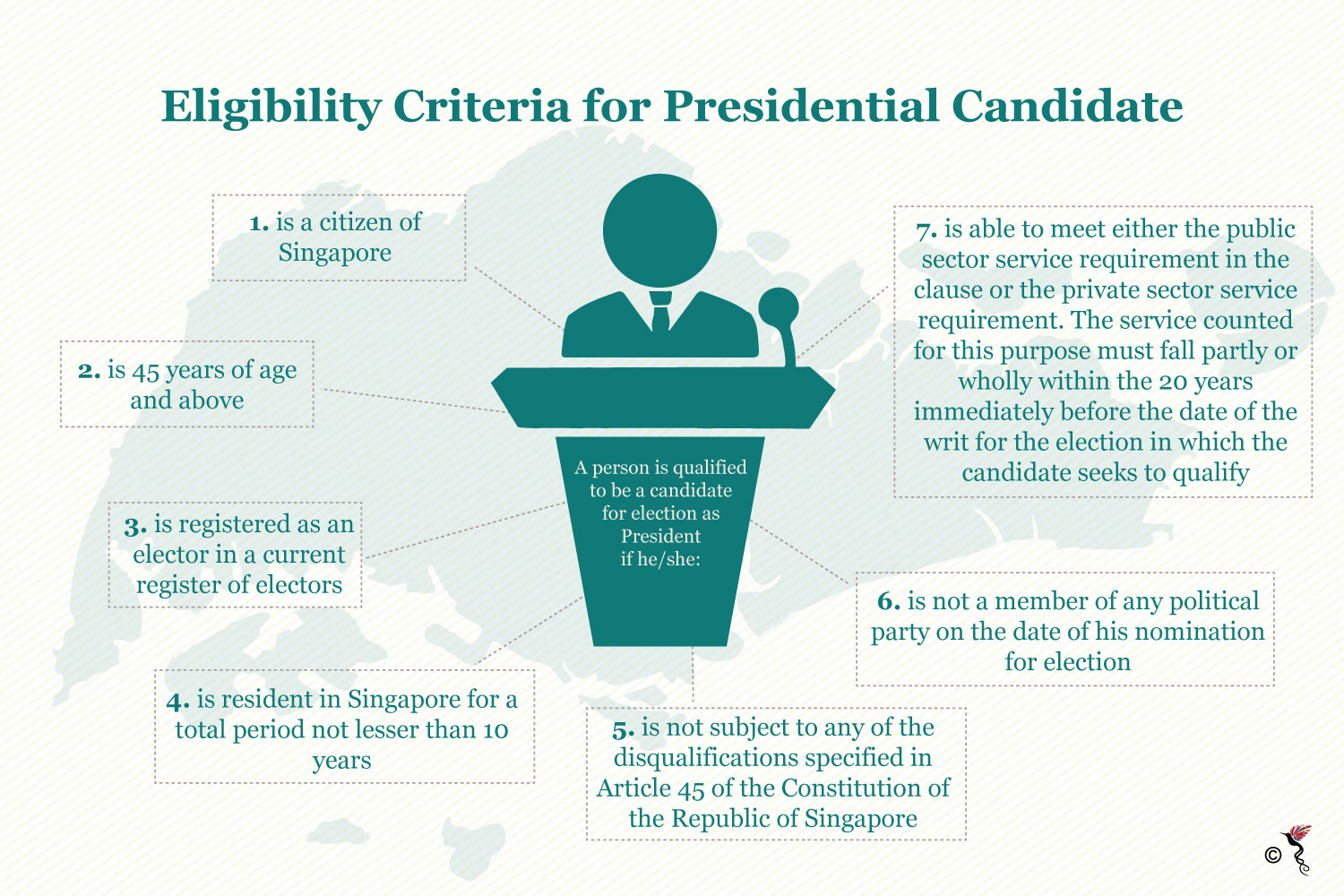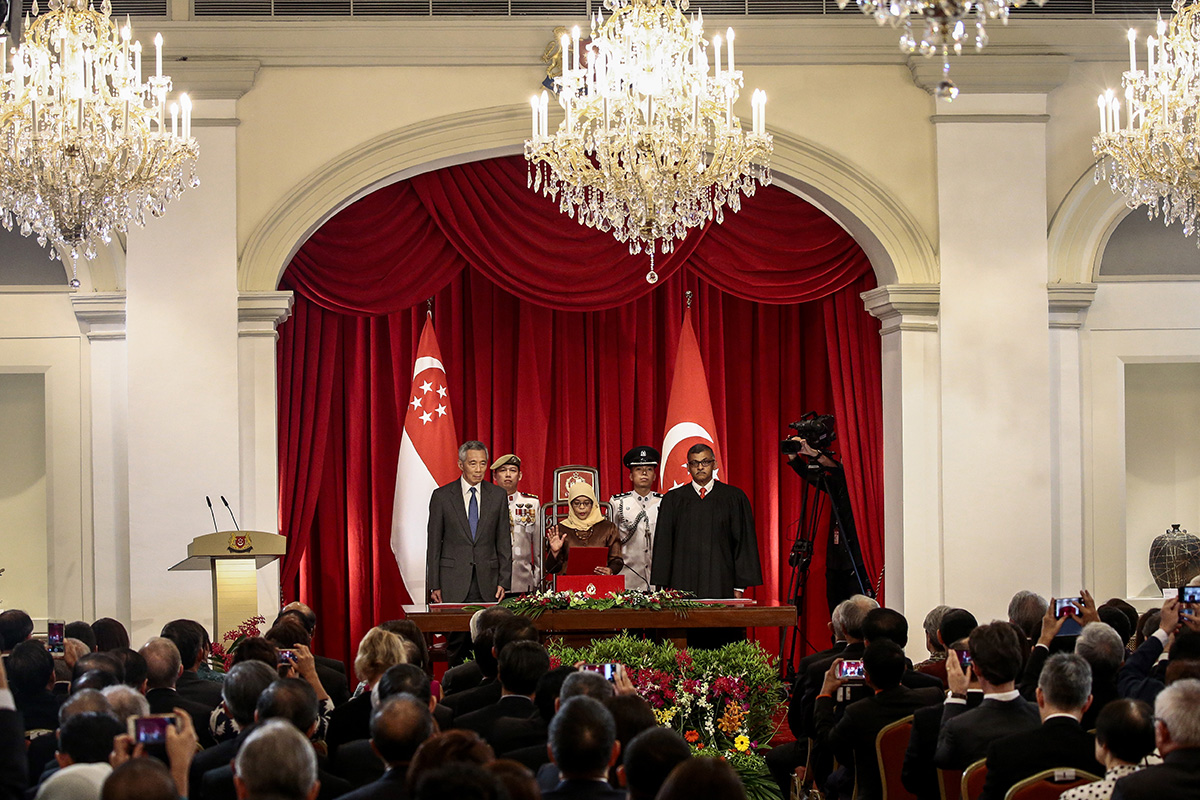Officially sworn in as Singapore’s eighth president, Halimah Yacob, 63 has become the first female president in the history of Singapore after successfully filling her nomination papers while obtaining the support of the Singapore's Prime Minister Lee Hsien Loong.
In a speech, Lee described Halimah as a respected unionist who championed the employment and well being of union members and workers and also their family members, especially for women who are returning to work.
Singaporean political leaders, MPs (Member of Parliaments) as well as members of the cabinet such as Deputy Prime Minister Teo Chee Hean, Law Minister K. Shanmugam, Foreign Affairs Minister Vivian Balakrishnan, Education Minister for Schools Ng Chee Meng, Sembawang GRC (Governance, Risk Management, and Compliance) MP Amrin Amin, Chua Chu Kang GRC MP Zaqy Mohamad, Tampines GRC MP Baey Yam Keng, Aljunied GRC MP Pritam Singh, MacPherson MP Tin Pei Ling, Central Singapore District Mayor Denise Phua shared their support for Halimah through social media in congratulating her as the running PEC (presidential election committee) and for her dedication in performing her duties, citing her record of unwavering commitment shown in upholding worker welfare for the past 40 years.

Timeline of Singaporean presidency.
However, being the sole candidate for this year’s Presidential elections, Halimah's election as president has drawn the attention of the international media and have stirred mixed emotions among the Singaporean citizens.
Some citizens expressed their dissatisfaction and frustration through social media platforms like Twitter and Facebook, saying that it was a sad day for Singapore while others considered the nomination a joke when they heard Halimah's candidacy was confirmed on September 11 while not having to campaign and fight for votes. The silent movement protest reserved election, organised by activist Gilbert Goh where hundreds took part at Hong Lim Park on Saturday protesting against the presidential election.
SCWO (Singapore Council of Women's Organisations) President June Goh who responded to The ASEAN Post regarding Halimah’s elected president shares the similar viewpoints. “I am sure there are many differing views as many want to have a chance to vote and a choice but ultimately what is important is the competence and the qualities of the person who will best represent our nation on the world stage. Given the present time with threats of terrorism, a strong rallying force is all the more important to ensure the people are resolute and unified,” she said.
From online comments and tweets posted with #notmahpresident to Halimah’s personalised "emoji", her presidency has been widely discussed on social media as netizens continued to express their disappointment over the last few days, making it one of the most discussed topic online within the region.
The other two candidates, Farid Khan and Salleh Marican, who contested in the presidency with Halimah Yacob, did not qualify because they were deemed to not have fulfilled the requirement of holding certain key government appointments or were the chief executives of profitable companies with shareholders' equity of an average of S$500 million (about 371 million dollars).

Criteria of presidential candidates' eligibility in Singapore.
While the president plays a largely ceremonial role in Singapore, as the head of the state Halimah will have the executive power to veto a proposal submitted by the government on the state’s financial reserves. She is also empowered to approve changes in key civil service positions such as the Chief Justice, Attorney General, the Public Service Commission as well as the Commissioner of Police. Her duty to Singapore includes appointing the Prime Minister, but she will not be able to suggest what changes are to be made to the national budget. As the president, Halimah becomes a symbol of the island nation – much like the British queen, the Indian president and the Malaysian king.
In Singapore, the Malay ethnic group only makes up about 13 percent of the population. Considering that, the president, while being both Malay and a female, is a positive progress in both diversity and female empowerment in the country. “It has been a struggle getting more women into parliament and politics, even into boards so this is a big stride forward for us,” Goh commented in an email response to The ASEAN Post.
In her election speech, Halimah Yacob spoke about being the first female president. “Every woman can aspire to the highest office of the land if you have courage, determination and the will to work hard,” she said.
The president also addressed her nation on the importance of standing together while encouraging shoulder-to-shoulder cooperation to build Singapore as a home for everyone. "The best is yet to come," Halimah added. Meanwhile, other ASEAN nations should also follow in the footsteps of Singapore in ensuring gender equality in key leadership roles and the general workforce to optimise the economic and socio-economic potential of the ASEAN region.
